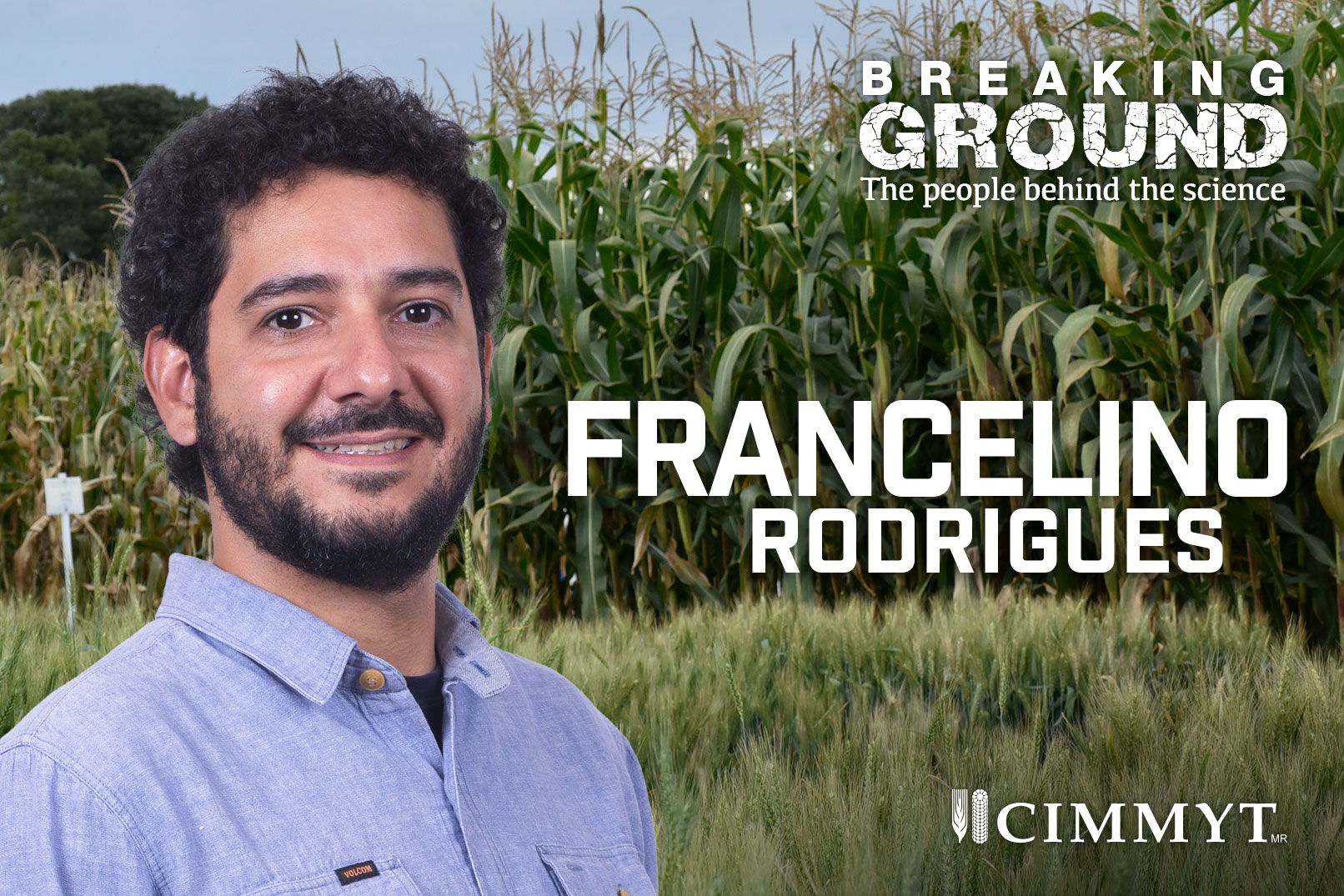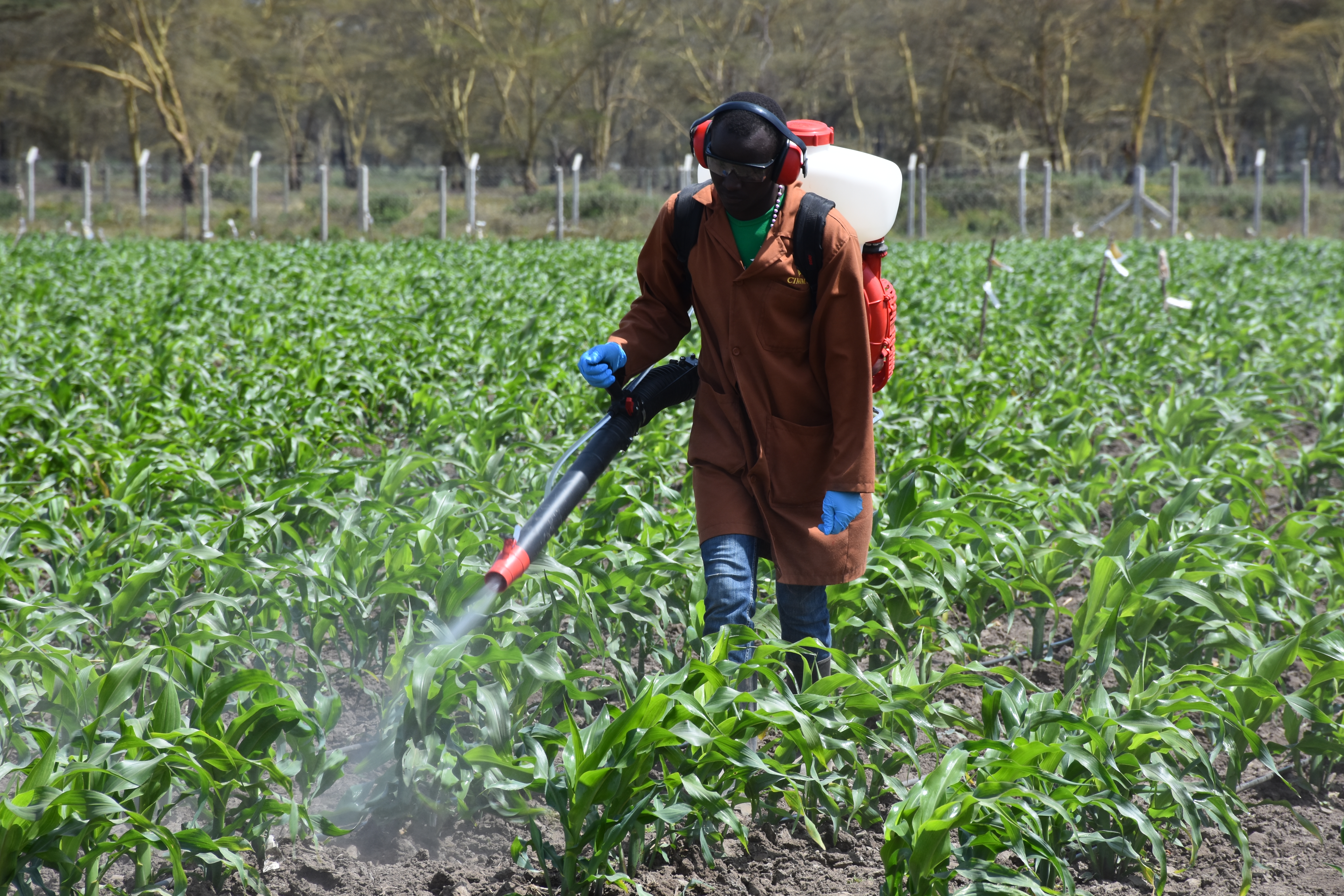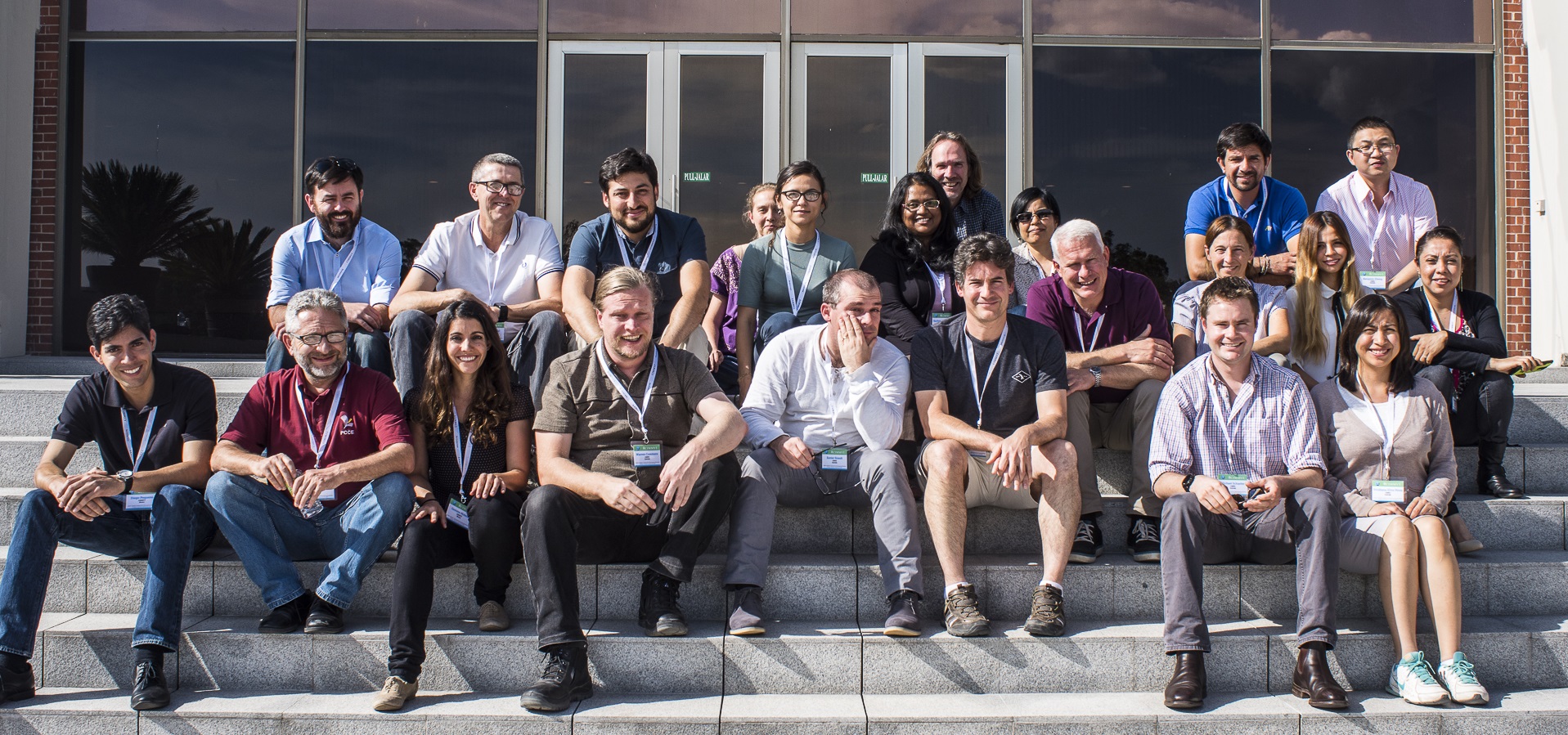Innovations
Working with smallholders to understand their needs and build on their knowledge, CIMMYT brings the right seeds and inputs to local markets, raises awareness of more productive cropping practices, and works to bring local mechanization and irrigation services based on conservation agriculture practices. CIMMYT helps scale up farmers’ own innovations, and embraces remote sensing, mobile phones and other information technology. These interventions are gender-inclusive, to ensure equitable impacts for all.
Breaking Ground: Francelino Rodrigues on high-tech farming
 Innovations
Innovations
Francelino Rodrigues’ expertise in precision agriculture brings a high-tech element to CIMMYT’s field trials.
New Publications: Improving wheat breeding through modern genetic tools
 Innovations
Innovations
A new study shows how wheat breeders can more efficiently increase yield and improve their selections by using modern genetic tools.
Why development needs innovation
 Capacity development
Capacity development
“Innovation” may be just another development buzzword, but adopting the principles behind it is crucial if organizations hope to attract funding and achieve lasting impact.
New online portal offers information to curb maize lethal necrosis in Africa
 Innovations
Innovations
The new maize lethal necrosis online portal provides up-to-date information and surveillance tools to help researchers control and stop the spread of the deadly disease.
Zero till climate-smart wheat-rice-bean crop rotations in India curb emissions
 Innovations
Innovations
Zero tillage with residue retention techniques in rice-wheat-mung bean crop rotations result in the lowest global warming potential, a study on sustainable intensification in India shows.
Breaking Ground: Mainassara Zaman-Allah uses remote sensing to expedite phenotyping
 Climate adaptation and mitigation
Climate adaptation and mitigation
Mainassara Zaman-Allah uses new technologies to speed up the collection of plant information for breeding.
New planters promote environmentally-friendly farming in Pakistan
 Innovations
Innovations
Farmers and research partners are praising innovative, locally manufactured farm implements that support conservation agriculture in rice-wheat farming rotation in Pakistan.
Farmer in Malawi defines true project success
 Innovations
Innovations
Development initiatives are only truly successful when participants graduate, adopt and leave.
New Publications: Study shows improved maize decreases malnutrition
 Innovations
Innovations
New evidence shows that not only do improved maize varieties increase crop productivity and farmer income, they can also decrease child malnutrition.
Breaking Ground: Crop simulation models help Balwinder Singh predict future challenges
 Innovations
Innovations
Balwinder Singh uses crop simulation models to help smallholder farmers in South Asia prepare for future climates and unexpected challenges.
DuPont Pioneer explores support for CGIAR Excellence in Breeding Platform
 Innovations
Innovations
A DuPont Pioneer leadership delegation visited CIMMYT HQ on 12 May, 2017.
Breaking Ground: Vijay Chaikam develops doubled haploid lines to accelerate maize breeding
 Innovations
Innovations
Vijay Chaikam works as a scientist and manager at the International Maize and Wheat Improvement Center doubled haploid facility in Kiboko, Kenya.


